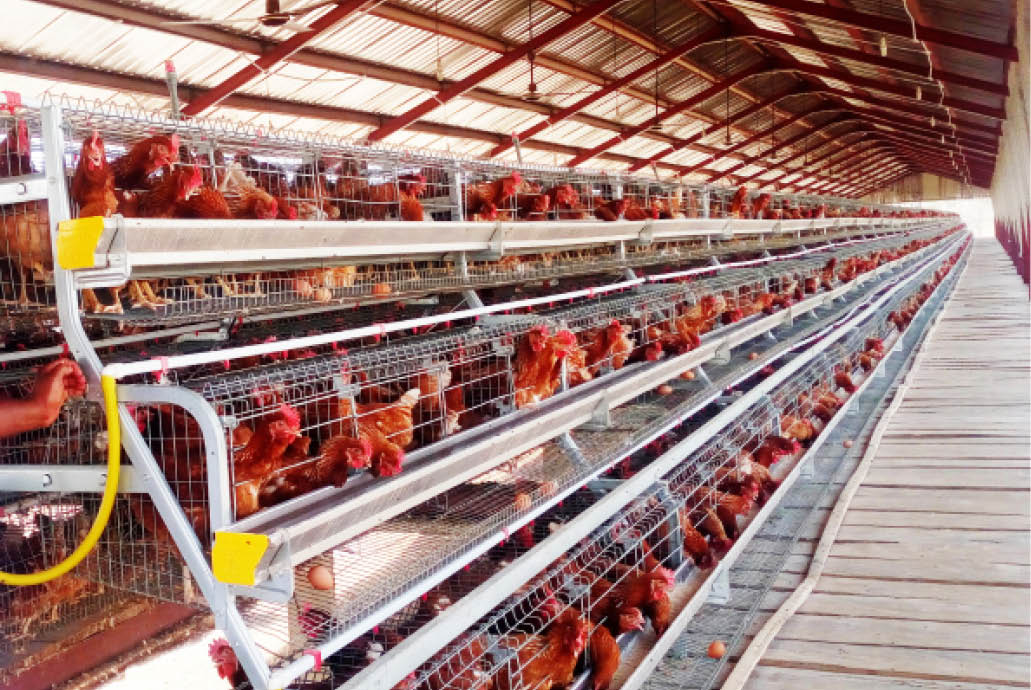If you are a poultry farmer, you probably will have noticed birds laying small or big eggs in the farm. To assist farmers tackle the problem, Golden Harvest spoke to Dr. Bala Mohammed, a poultry expert based in Abuja, on the issue.
Dr. Mohammed told Golden Harvest that productivity with layer birds in terms of eggs production is largely dependent on four things that will determine the size and number of eggs a farmer gets from his birds. There are “quality and quantity of output by layers birds.” he said.
The first thing is the size of the birds: if you have birds that are just coming to lay (young layers who are just 18 to 23 weeks old) you are not likely going to get standard egg size from them – it is a natural phenomenon with layers.
The second aspect is feed and feeding: the quality of feed you give to farm animals, including layers, determines what you get out of them – like we always say “garbage in, garbage out.” If you give them feed that is deficient in certain nutritional value that will support egg production, you certainly will not only have them in small size, but even the number will drop.
“That is why we always advise that for laying birds, you have to feed them but also there is a regime of feeding so that you also don’t get them too fat and then the eggs are too big and cause other problems. Here, we are talking of the kind of feeding regimes and nutrition that are standard for the kind of eggs they lay and which people consider standard size,” he stated.
The third reasons for birds laying small eggs and also less number of eggs are diseases. You have some experts that will tell you the problem is coming from a particular kind of disease. For instance, the most common is that you could have Newcastle disease on your farm.
“Once you have Newcastle disease and it’s not an apparent infection, you would have the size of the eggs not only reduced, even the shell will instead of being brownish, you start having whitish eggs. And at the end, it will affect the number (of eggs) they give you since the disease would affect their ability to feed,” he said.
Lastly, weather also contributes to the small size of eggs. Inclement weather conditions, particularly in the North where you have extremely high weather condition, will cause birds not to eat well and if they don’t eat the right quantity of feeds, the number of eggs they will give to a farmer will be reduced, he stated.
“We always advise that in season like the one we are getting into, you have to have a way of feeding you birds – say at night, when the weather is tolerable. You have to be a little bit innovative by feeding at night when the temperature is down so that the birds will give you eggs the following day. But if you decide to feed in the day time when the temperature is high, they are not going to be able to eat and therefore will not give you the number of eggs you so desire,” the poultry expert said.

 Join Daily Trust WhatsApp Community For Quick Access To News and Happenings Around You.
Join Daily Trust WhatsApp Community For Quick Access To News and Happenings Around You.



